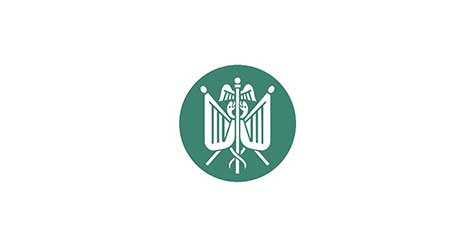Business Breakfast at BME GTK
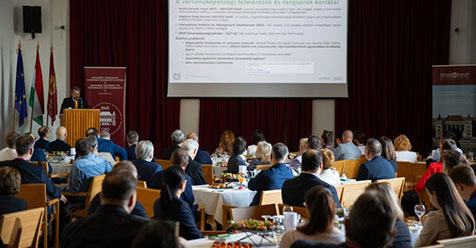
Economy, science, cooperation – this is how BME GTK supports companies. Competitiveness challenges in the Hungarian economy and organizational efficiency assessments were among the topics at BME GTK’s Business Breakfast.
The Faculty of Economic and Social Sciences (GTK) of the Budapest University of Technology and Economics (BME) can connect with businesses and institutions as an interdisciplinary knowledge hub and strategic partner. The Faculty’s experts offer research and analytical solutions across a range of fields, including finance, management, communication, psychology, environmental economics, and ergonomics, that support efficient operation, innovation, sustainability, and increased competitiveness. GTK aims to make scientific knowledge accessible in a form that can be directly utilized by the economy.
These competencies and goals were among the topics at the latest event of the Business Breakfast series. Following a welcome speech by Rector Hassan Charaf, Dean Tamás Koltai introduced the Faculty of Economic and Social Sciences, which operates nine departments, two centres, one institute, and one research group.
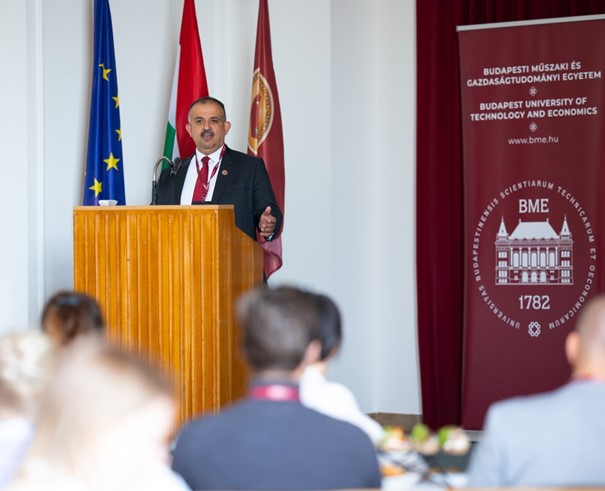
Currently, the Faculty has nearly 4,000 students in 6 undergraduate programs, 11 master’s programs, and its doctoral school, taught by 167 lecturers – an impressive ratio by Hungarian standards. As its name suggests, GTK is not a traditional business school; it also includes a range of other areas, from communication to psychology. Tamás Koltai also mentioned that GTK is the only domestic economic education institution, alongside Corvinus University of Budapest, to be ranked by the QS international university rankings in the Business and Management category.
András Bethlendi, Vice Dean for Financial Affairs and Head of the Department of Finance, discussed Hungary’s competitiveness indicators and the possibility of escaping the “middle-income trap” in his presentation titled “Competitiveness Challenges – Partnership for Success”. He noted that while the validity of international competitiveness rankings has its limits due to methodological difficulties, it is concerning that Hungary ranked 54th out of 67 developed countries last year, according to the Swiss-based International Institute for Management Development (IMD).
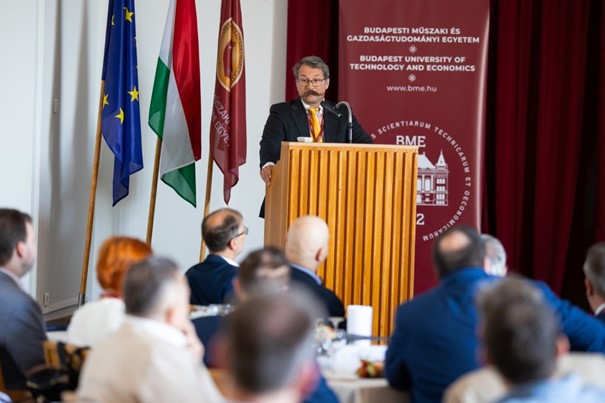
Furthermore, Hungary ranked last in terms of private sector efficiency in that list, though domestic infrastructure (41st) and government (51st) scored better. The Hungarian National Bank’s own ranking, which considers broader societal impacts in addition to business considerations, paints a more favourable picture, placing Hungary 19th among EU member states. “The truth probably lies somewhere between the IMD and the Hungarian National Bank rankings,” András Bethlendi remarked.
Tamás Koltai presented the efficiency tests conducted by the Faculty’s researchers at various organisations, including the operation of musculoskeletal rehabilitation hospital wards, an analysis of the Hungarian State Treasury’s payroll activities, and a performance evaluation of GTK’s own instructors. Relative efficiency tests can help companies uncover internal reserves, identify best practices, and make operational intervention recommendations for inefficient organisational units.
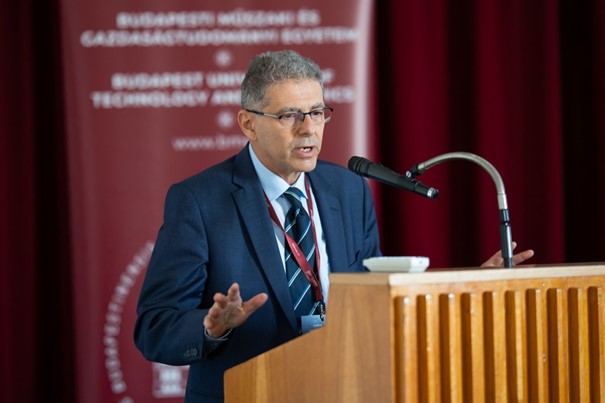
András Nemeslaki, Vice Rector and Head of the Department of Management and Business Economics gave a presentation titled “Development of Innovation-Driven Enterprises”, in which he discussed what path development might take as the extensive growth reserves of the Hungarian economy become exhausted. The path forward, he said, lies in fostering innovation-driven enterprises, and remarked that innovation is not merely R&D, but a combination of discovery and marketing.
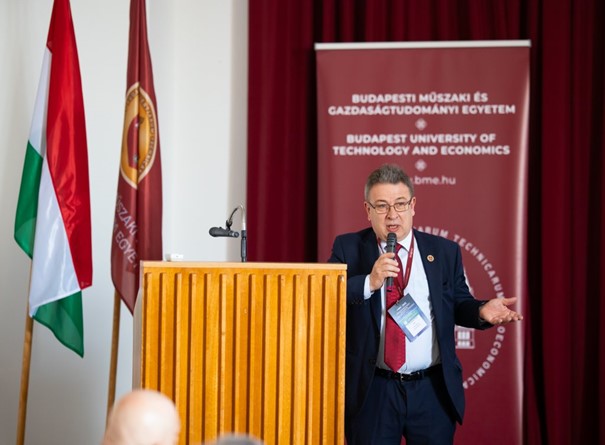
“BME wants to build partnerships because innovation requires an ecosystem,” András Nemeslaki stated. He added that just 1,200 Hungarian companies (about 0.3% of the total) contribute nearly a quarter of the country’s GDP growth and 13% of its exports. GTK researchers have been interviewing the leaders of these companies for years to understand how their know-how differs from that of other Hungarian businesses.
Attila Buzási, Associate Professor and Head of the Department of Environmental Economics and Sustainability, presented “Sustainability Solutions at BME GTK”. He briefly outlined the Faculty’s sustainability strategy and described its carbon footprint calculation and offsetting services for organizations such as the National Security Service and the Zala Autóipari Próbapálya Zala Zrt. He also mentioned that BME will launch an ESG advisor training program in October 2025, delivered in hybrid format and in collaboration with corporate partners.
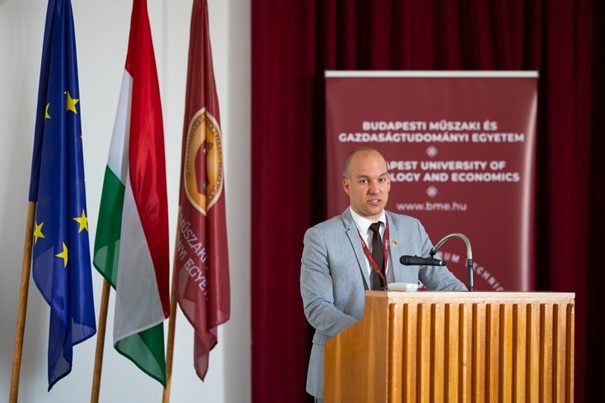
Linda Szijjártó, Assistant Professor of the Department of Ergonomics and Psychology, gave a presentation on the labour market challenges of reboarding, typically referring to women returning to work after parental leave. Her talk addressed family-friendly career management, the benefits of maternity coaching ranging from reduced fluctuation costs to increased productivity, and the competitive advantages of a caring, family-friendly corporate culture.
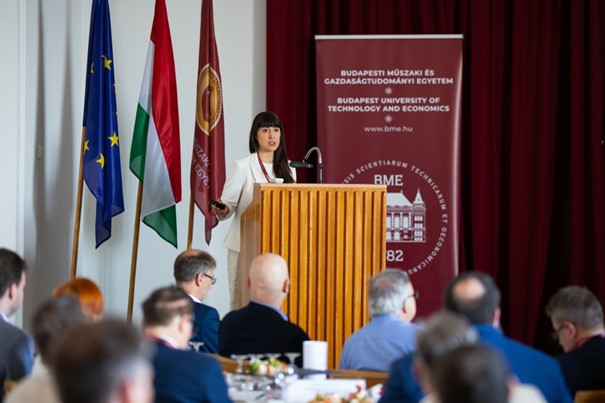
Finally, Mária Szalmáné Csete, Vice Dean for International Affairs and Associate Professor in the Department of Environmental Economics and Sustainability, gave a presentation titled “Shaping the Future Together – Experiences and Future Opportunities at GTK. She spoke about the Faculty’s educational characteristics, including interdisciplinarity, flexible and project-based learning formats, and business and research partnerships. She emphasized that GTK intends to institutionalize its existing strong connections with companies and government agencies, uncover new collaboration opportunities, and utilize them effectively so that students can get as close as possible to the economic sector where they can apply the knowledge they have acquired during their studies.
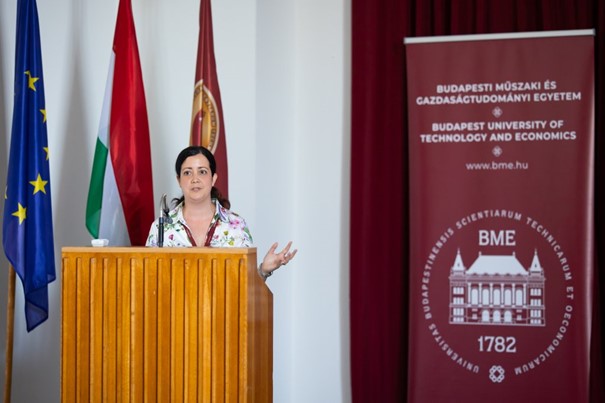
The original, Hungarian-language article is available here.
